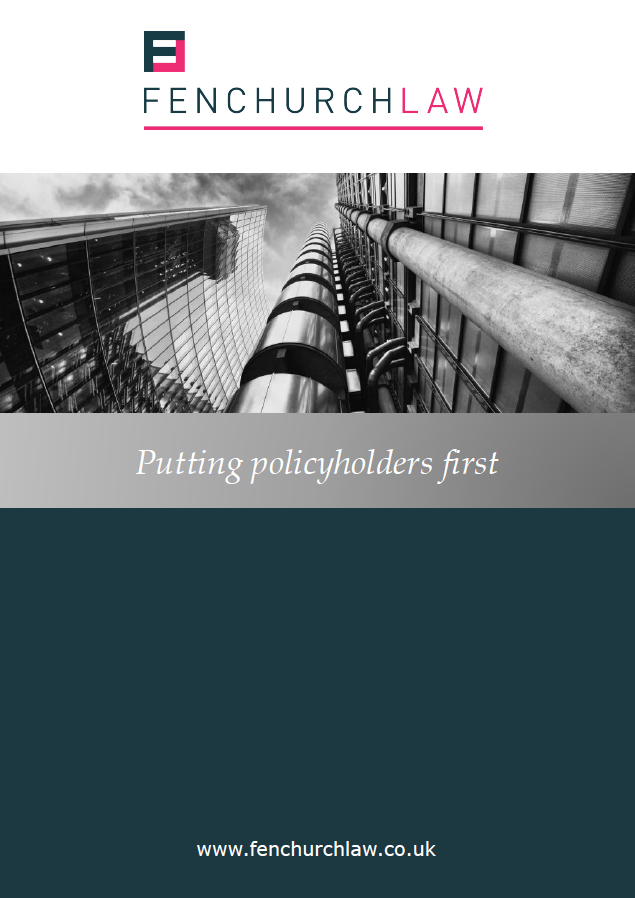
FCA Test Case Update – Judgment
Today’s judgment in the FCA’s Test Case on Covid-19 Business Interruption coverage has provided some welcome good news for many policyholders – as well as disappointing findings for others. The court’s findings were very clearly divided between the policyholders seeking coverage under Disease clauses, and those claiming under Prevention of Access or similar extensions.
Disease
With the exception of two of the QBE wordings under consideration, it is unquestionable that the judgment is favourable for those policyholders that have one of the Disease Wordings that has been assessed as part of the FCA Test Case. Critically, the court found that the occurrence of the disease did not need to occur only within the radius contemplated in the policy. Provided that the occurrence of the disease extended into the specified radius, the coverage would be triggered. This has been one of the first coverage issues that policyholders have had to overcome, and which insurers have strongly resisted.
Furthermore, for those policyholders that do not have the benefit of the specific Disease Wordings looked at the FCA Test Case, but instead some other Disease wording, the consistency of the findings is likely to provide persuasive authority to support the ongoing claims under those other wordings.
Prevention of Access and Public Authority wordings
The position, however, is surprisingly less favourable for the majority of those policyholders with Prevention of Access and Public Authority Wordings that were considered as part of the FCA Test Case.
The starting point for these particular wordings appears to be that they would only in principle respond to localised occurrences of the disease. Interestingly, the Court reached a very different and narrower conclusion on the meaning of the term ‘vicinity’ in the context of the Prevention of Access wordings, compared to that under the Disease clauses. Each particular wording will have to be closely scrutinised, however, as the judgment affects different wordings in different ways, as may the application of the facts pertaining to individual policyholders.
While it is clear that this aspect of the judgment is unhelpful for affected policyholders, it remains to be seen whether the FCA will appeal any aspect of it, and whether the judgment is as unhelpful for those policyholders that have Prevention of Access/Public Authority wordings other than those specifically looked at as part of the FCA Test Case.
Causation
A striking aspect of the judgment is the way the Court neatly dispatches with the complicated causation arguments raised by insurers, by making it a part of their very clear finding on the construction of the coverage clause. Because, the court says, the insured peril is the composite peril of interruption or interference with the Business caused by the national occurrence of COVID-19, the causation arguments ‘answer themselves’. There is only one cause of loss. For the same reasons, trends clauses are largely irrelevant and the principle in Orient Express has no application.
The court’s finding that Orient Express was wrongly decided and that they would not have followed it even had they not found it to be distinguishable, will certainly raise eyebrows, and will surely lead to an appeal from Insurers on this issue at least. In deciding whether also to appeal on the policy trigger issues, Insurers will have to weigh up the potential further reputational damage they may suffer from being seen to resist the Court’s very clear findings.
Our detailed analysis of the judgment and commentary on next steps will follow.
Other news
Timing is everything – Makin v QBE and the cost of not complying with a condition precedent
3 July 2025
This recent decision from the High Court provides a powerful reminder of the consequences of not complying with a…
You may also be interested in:
Archives
Categories
- Newsletter
- Events
- Webinars
- Comparing German and English Insurance Law – A Series
- Construction Risks
- Operations
- Business Development
- Construction & Property Risks
- News
- International Risks
- Legislation
- Financial & Professional Risks
- Case Law
- Professional Risks
- Press Release
- Uncategorized
- The Good, the Bad and the Ugly
- Fenchurch Law Webinars
- Stonegate



